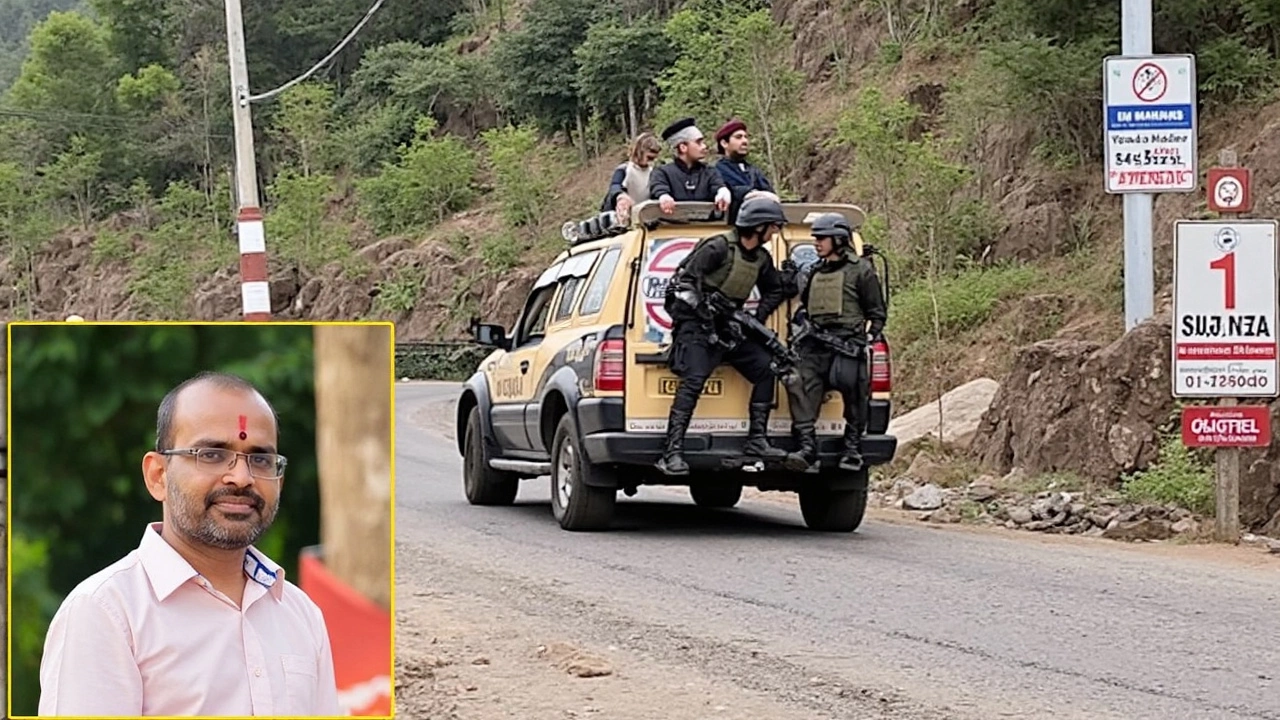Pahalgam Terrorist Attack: 28 Killed as TRF Claims Responsibility in Jammu-Kashmir
 Apr, 23 2025
Apr, 23 2025
28 Dead in Pahalgam: TRF Claims Attack on Tourists and Outsiders
It’s been a nightmare for Jammu-Kashmir. On April 23, a terrorist assault in Pahalgam left 28 people dead in one of the deadliest attacks the region has seen in recent years. Among the victims were not just local residents but also several tourists, shining a harsh light on how even visitors face grave danger here. Eyewitnesses have described chaotic scenes, gunshots ringing out at night, and families scrambling for cover during what should have been a peaceful vacation.
The plot thickens with the involvement of The Resistance Front (TRF), a group now grabbing headlines. TRF wasted no time in claiming responsibility. In their public statement, the group pointed fingers at the government’s policy of issuing domicile certificates to people from outside Jammu-Kashmir. According to their claim, these changes are meant to alter the demographic landscape of the region, and the attack was carried out to push back against such moves. Their statement reads more like a threat for future incidents than a simple admission.
Things got even more unsettling when reports surfaced that a businessman from Raipur, known to be in the wrong place at the wrong time, was also targeted. Though officials haven’t confirmed the identity, locals and social media paint a grim picture of what’s happening to non-locals who travel to Kashmir for work or leisure.
The Hunt for the Masterminds and the Political Ripples
All eyes are now on Lashkar-e-Taiba’s senior commander Saifullah Khalid, also called Saifullah Kasuri—a name familiar to intelligence agencies. The US Treasury had already listed him for his Lashkar-e-Taiba links long before this attack. Now, he’s under the scanner as one of the masterminds behind this carnage in Pahalgam. Indian security agencies believe the orders and support came from across the border, and the usual fingers are being pointed at handlers in Rawalakot.
With this backdrop, authorities are not taking any chances. The local administration has flooded the region with security forces, beefing up road checks and patrols, especially as the annual Amarnath Yatra—a magnet for thousands of devotees—is just weeks away. You can feel the tension rising in the air as soldiers, police, and intelligence operatives scour the valleys for suspects and tighten the grip on vulnerable areas.
The attacks have shocked both officials and the ordinary public. Prime Minister Narendra Modi called an emergency cabinet meeting, pushing for a go-hard stance. Home Minister Amit Shah echoed the mood, promising the harshest punishment for anyone found guilty. On the ground, protestors in Jammu took to the streets, demanding justice and a return to safety, while political parties lined up to call the incident “tragic” and “unacceptable.”
Right now, the investigation is in full swing, with search operations zeroing in on possible terror hideouts. The focus: track the movements of TRF operatives and dig deep into the Lashkar-e-Taiba network. With the summer tourist season heating up, and the memory of this attack still fresh, both locals and visitors wait and watch—hoping this does not become the new normal for Jammu-Kashmir.